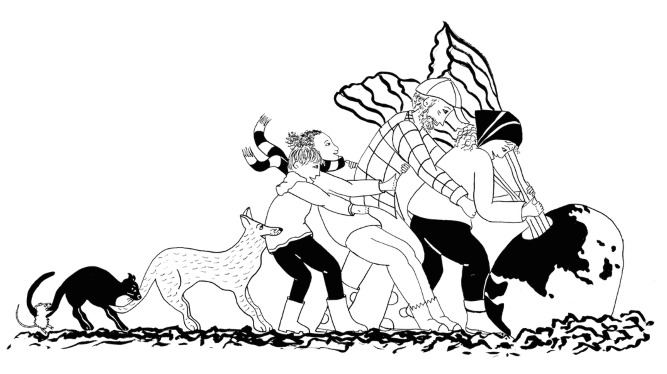Further reading:
Corvellec, H. (2018) ‘Waste as scats: For an organizational engagement with waste’, Organization, doi: https://doi.org/10.1177/1350508418808235.Hobson, K. and N. Lynch (2016) ‘Diversifying and de-growing the circular economy: Radical social transformation in a resource-scarce world’, Futures, 82: 15-25.
Valenzuela, F. and S. Böhm (2017) ‘Against wasted politics: A critique of the circular economy’, ephemera, 17(1): 23-60. [http://www.ephemerajournal.org/contribution/against-wasted-politics-critique-circular-economy]
Key resources on degrowth: degrowth.info (especially the Media Library), degrowth.org
Institutet för nerväxtstudier (the Institute for Degrowth Studies) is a non-profit organization working to stimulate discussion around the concept of degrowth and to promote degrowth in practice, through activities such as seminars, workshops and study visits which are open to everyone, as well as collaboration with organizations working on related issues. We are based in the Malmö/Lund area and our work builds on the successful organization of the 6th International Degrowth Conference for Ecological Sustainability and Social Equity, which was held in Malmö in 2018. Please see our website for more information, and if you are interested in getting involved, you are welcome to send us an email or join one of our general meetings held every month in Lund or Malmö.
Website: degrowth.se
Email: info@malmo.degrowth.org
Twitter: @degrowthsweden
Keypoint 2 - Small-scale farming → Food Cooperatives
Benefits for both the ecosystem and society
Labour and knowledge intensive
Autonomous
Food & degrowth
Keypoint 1 - Relocalization of food → Ecolivs
Short supply chains (Direct producer-consumer relationship)
Seasonal food → Exchange without deprivation
Keypoint 4 - Food and Degrowth: The future is here! → Mossagarden
Importance of already existing alternatives dealing with the symptoms of the conventional food industry
Abundance of farmer alternatives, return to farming
Keypoint 3 - Think Global, Act Local → Ecovillage networks
Sharing of technological toolkits
Ecovillages
Transnational farmer movements (La Via Campesina)


